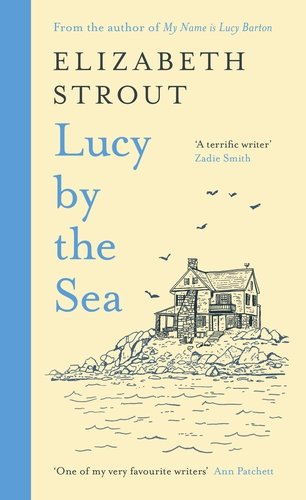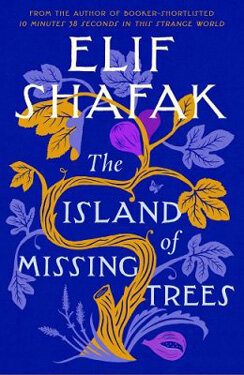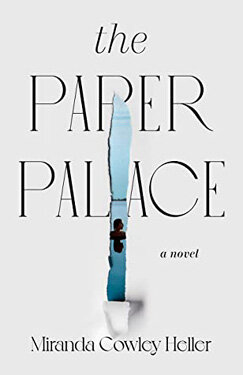What “Call Me By Your Name” did for peaches, “The Safekeep” does for pears. I do love a good historically set novel with lots of twists and turns in its plot. So I found this very pleasurable and moving to read as it's a story that has multiple levels. It's a creepy tale with almost gothic “Rebecca”-esque undertones about the claustrophobia of being stuck in a house with someone you resent and feel a growing animosity towards. It's about sexual repression and the transformative experience of all that pent up desire being released. And it's about the weight of history, the calamitous after-effects of war and how to reconcile what has been lost and displaced.
There are a number of reveals in this story so I'll do my best to avoid spoilers. The novel initially centres around Isabel who seemingly has little motivation other than maintaining her deceased mother's house and its contents. It's the 1960s and Isabel lives a severely self-contained existence in a rural Dutch province. Isabel is a real piece of work. She's nasty and rude to almost everyone she meets. There is a special kind of humour and pleasure in reading about a character who so unapologetically brushes aside social conventions because she's someone I'd never want to meet but it's fun to read about her dismissive attitude towards everyone. I did feel this became repetitive at times in this first section of the novel, but overall she's a compellingly unlikeable character. Isabel fiercely guards both the house and its contents and finds it hard to keep a maid because she continuously lashes out at them with judgements and accusations. However, Isabel is little more than a caretaker for this building which belongs to her uncle and it will be passed on to Isabel's older brother Louis when their uncle passes. I enjoyed how small details about both her family life and the contents of the house are dropped into this early section of the novel hinting at a larger story and adding to the complexity of her character.
Other than the maid the most human contact she has is with her younger brother Hendrik who has a teasing rapport with his uptight sister. Hendrik has lived away from this location since coming out to their mother who is now deceased. But Isabel studiously ignored the reality and reasons behind his leaving. It describes how “she could sometimes blur her eyes when looking at something – decide not to see it in full focus, decide to disengage.” This explains a lot about Isabel who uses self-denial when it comes to things that are emotionally difficult – both external and internal. Near the beginning there's a scene which sets this novel's plot into motion. Isabel's older brother Louis arranges a dinner for both Isabel and Hendrik to meet his new girlfriend Eva. (Interestingly in interviews the author has described initially writing this scene as a short story.) There's all the tension of the new girlfriend wanting to make a good impression and trying to get to know her partner's adult siblings, but in return the brother and sister are dismissive towards her because they see her as merely their brother's latest squeeze since he is a notorious womanizer. But there is a difference with Eva because Louis needs to travel for work and he informs Isabel that Eva will be staying with her in her carefully guarded house. Of course, Isabel is vehemently against this plan but she's not given a choice. So when rambunctious Eva moves into the family home it's like she is entering a powder keg ready to explode.
The house itself is like the central character in this novel. It is the safe keep which contains many possessions which are filled with meaning and it has witnessed many people and events passing through it over the years. I do like novels such as “North Woods” by Daniel Mason or “The Dutch House” by Anne Patchett or, indeed, “Rebecca”, where a house is itself a protagonist that possesses emotion. We're shown how The Safekeep has persisted throughout WWII and maintains a lot of secrets from both the personal lives of these characters and larger historical events. Isabel is a fascinating character who possesses a fierce determination to remain independent. There are small glimpses of her early family life and details strewn throughout her abode which I found intriguing as I wondered what the real story is behind Isabel and this house. It also builds a highly-pressured and stifling atmosphere where something eventually needs to break. But I never got a full sense of why Isabel is so fiercely attached to this house and its objects. I know she was following the direction of her deceased mother to maintain the house and she's extremely repressed so this was all she had, but as the full story of the novel is revealed this came to feel more like a plot device rather than something which would naturally occur.
Many readers have argued that the very end of the novel is too saccharine. I guessed very early on where the novel was going. Part of why I had a strong sense about this is because I knew the author is a big fan of Sarah Waters' “Fingersmith”. I'm sure anyone who has read that novel can see the strong influence it's had upon “The Safekeep”. The books are obviously set in very different time periods and contexts, but I couldn't help feeling like Van Der Wouden's novel is somewhat slighter compared to Waters' impressive yarn. The ending certainly didn't surprise me, but I think the author did a good job at showing how the conclusion for these characters is hard won. There was naturally a lot of mistrust and animosity because of their respective pasts and the lack of transparency between them. I don't think the ending is the main point of this novel as it's more about the tension of the story and what goes unspoken in our personal lives and the political workings/social attitudes of a nation in the aftermath of war.
I really appreciated Hendrik as a character and enjoyed the section where he and his partner Sebastian come to stay at the house. This loosened Isabel up which felt like a relief since her life with Eva was so stifling up to this point. I found it really moving learning of the conflict of Hendrik's early affair with the teacher and how he left the family home to be able to live honestly as a gay man. I wish there had been more about Hendrik and Sebastian's story, but I appreciate that the novel was necessarily centred on Isabel and Eva. If you've not seen this already, I'd strongly recommend reading Van Der Wouden's essay from several years ago 'On (Not) Reading Anne Frank'. It's really fascinating to discover she was never a natural reader and, even more so, her family history when she was an adolescent moving from Israel to the Netherlands and the anti-semitism she experienced there throughout her teens. It's interesting how this personal history could be interpreted as feeding into the underlying conflicts and simmering tension of “The Safekeep”. Overall, I really enjoyed this often gripping and atmospheric novel.























